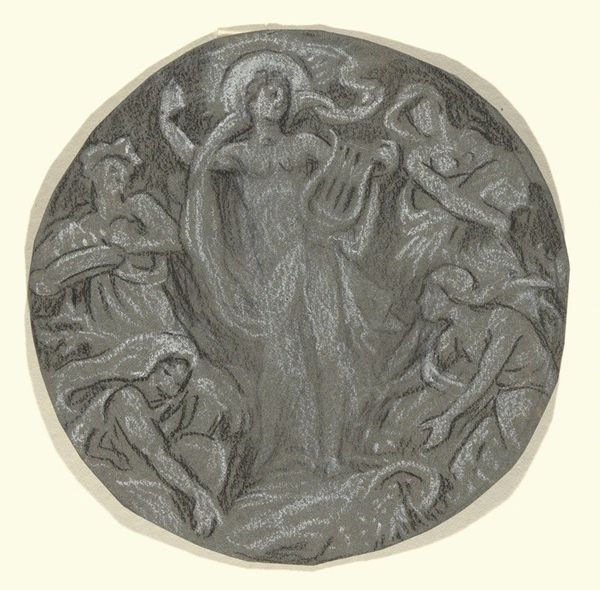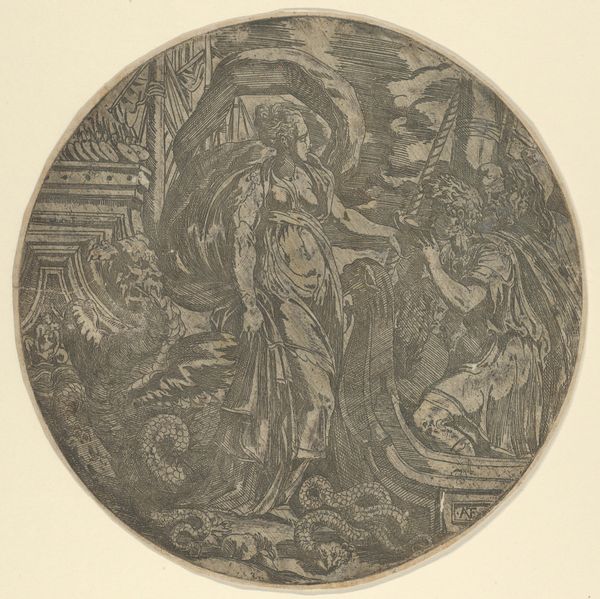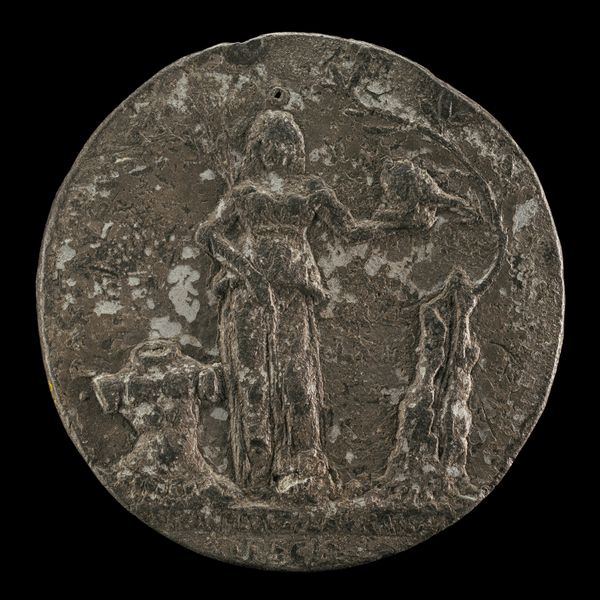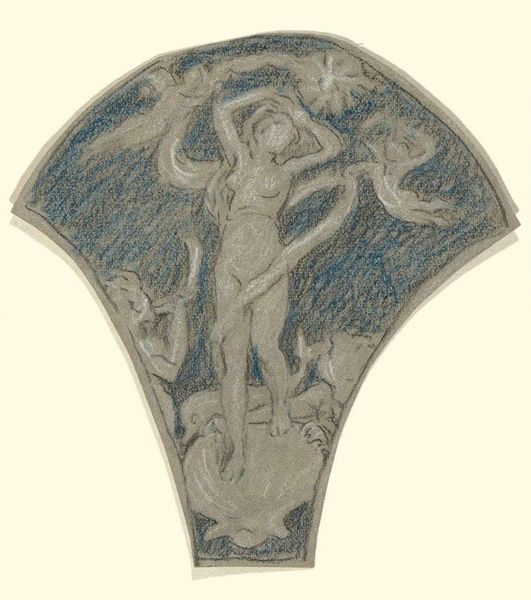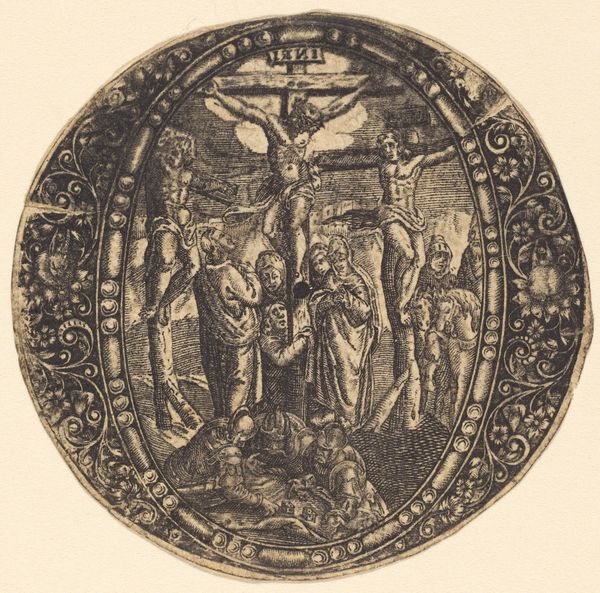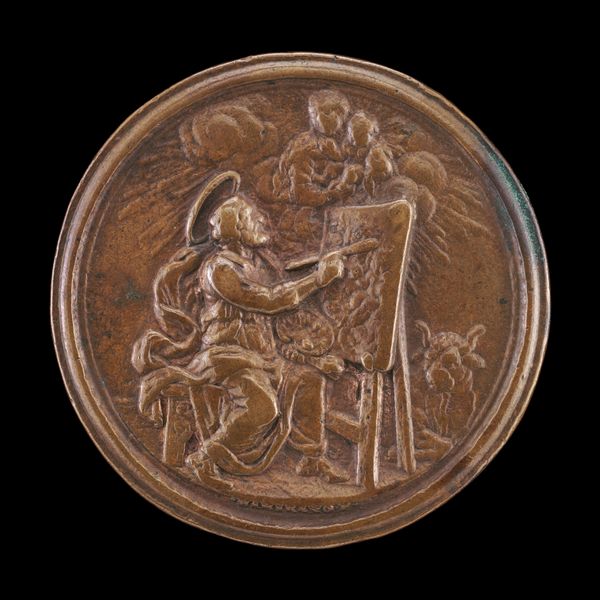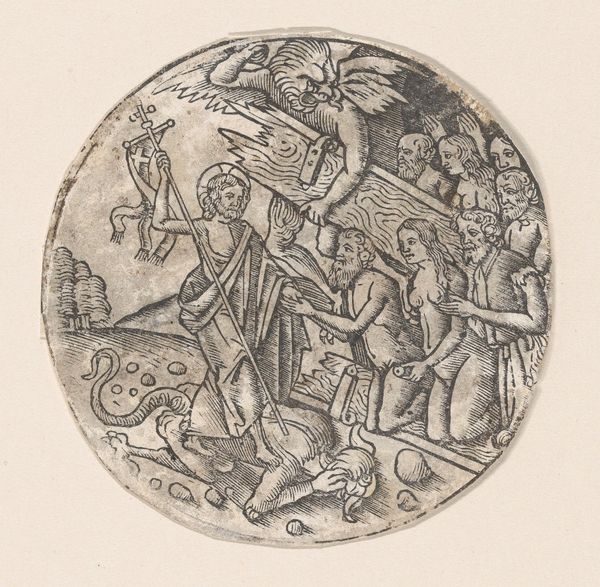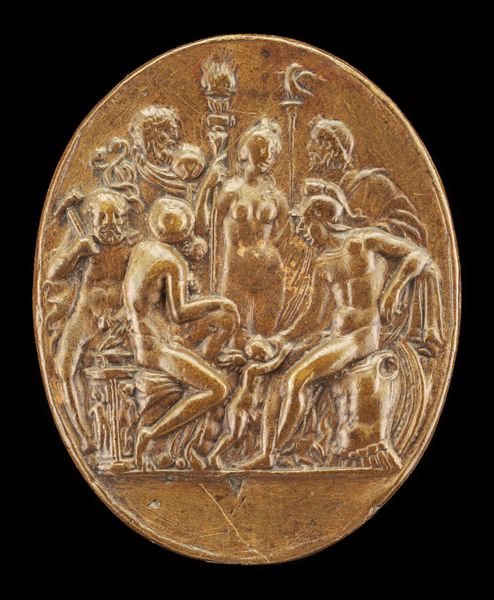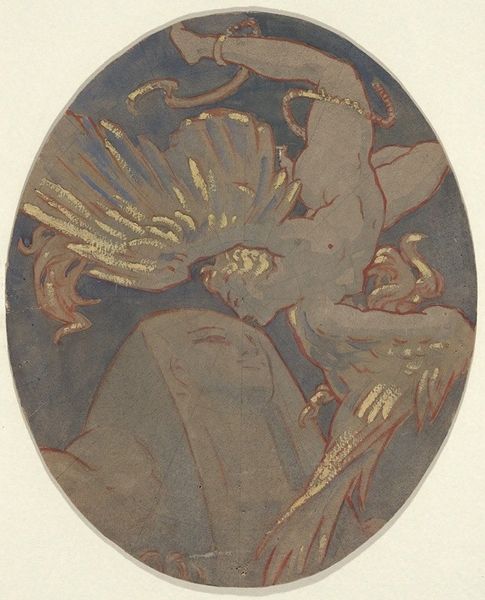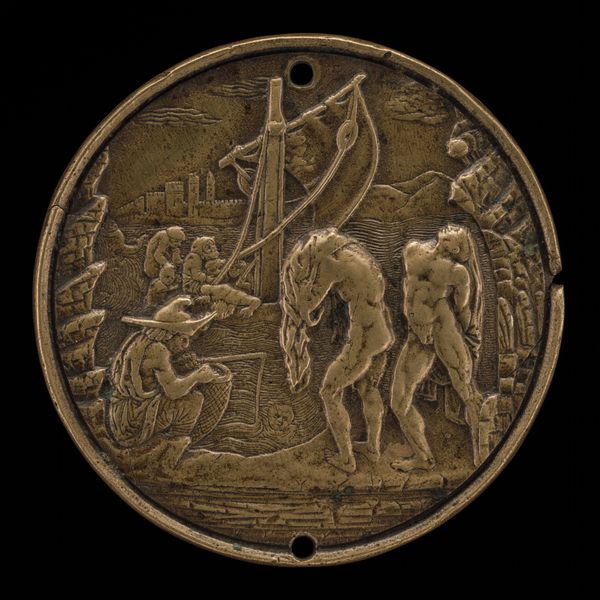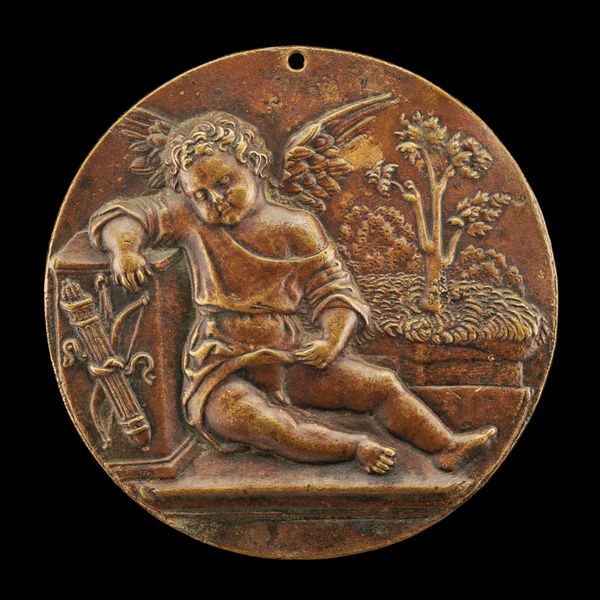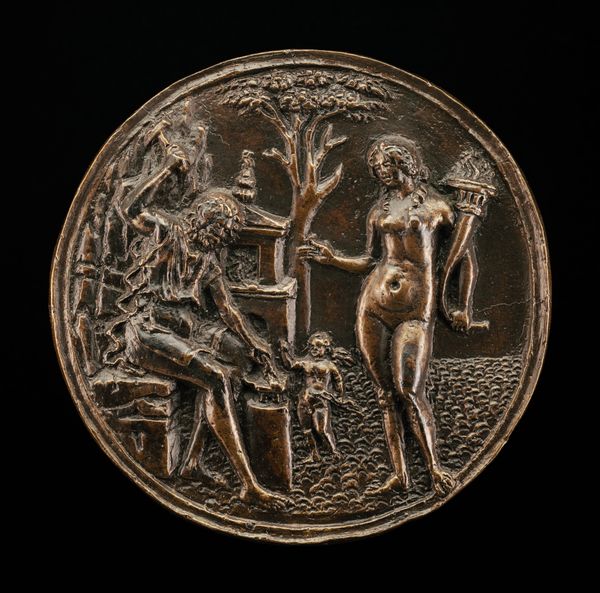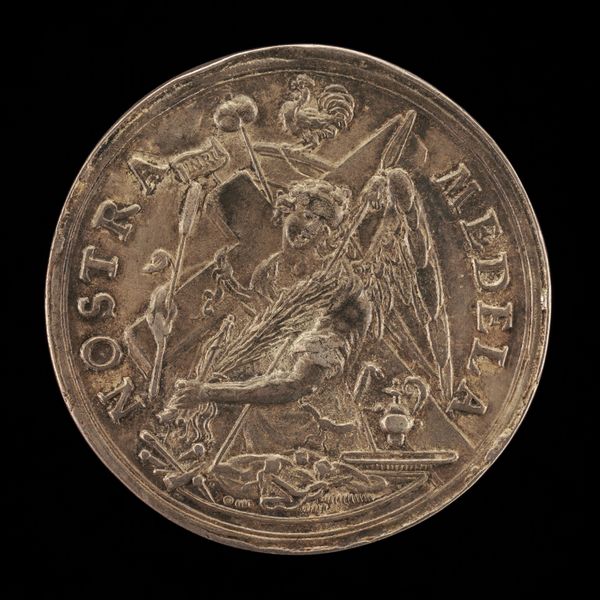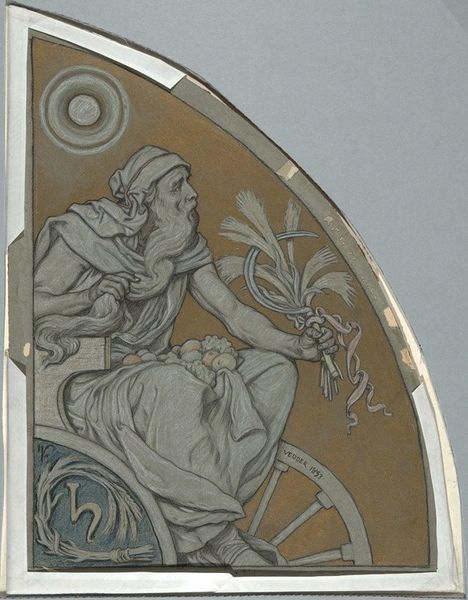
drawing, tempera
#
drawing
#
allegory
#
tempera
#
figuration
#
symbolism
#
history-painting
Copyright: Public Domain: Artvee
Curator: Elihu Vedder, around 1893, rendered this symbolic image in tempera and drawing: it's titled "Apollo and the Four Seasons." What is your initial impression? Editor: Mmm, immediate reaction? It's dreamlike, a little hazy around the edges. The palette gives it a kind of antique, ethereal quality, like peering into the past. It has a muted and serene tone. Curator: Vedder's Symbolist style sought to depict ideas and emotions rather than just representational accuracy, so dreamlike isn’t off. Within that framework, what strikes me is how Vedder uses this classical subject to really grapple with time and cyclical change, within the allegorical framework. Editor: Absolutely, and that cyclical nature is reflected in the circular composition of the drawing, reinforcing this theme of eternal return, the seasons chasing each other's tails. It's a very neat, and self-reinforcing touch. Apollo with his almost-expressionless face seems removed and transcendent of those concerns; in comparison, there are the four seasons in the outskirts seemingly being rushed around the edges in a bit of frenzy. Curator: Precisely. The faceless depiction of the Four Seasons can be analyzed from various perspectives. In art history, this connects to pre-modern visual devices which would rely less on portraits of people but instead, visual signifiers like the elements or the colors to mark individuals. In today's art critique, this could point towards themes about the representation of women's work in history or even nature as being forces deprived of individual personalities in Western traditions. Editor: Huh, faceless...it almost dehumanizes the seasons. Which I suppose is also kind of poignant, in a weird, distant way. I'm also seeing some interesting, sort of muted and hidden touches of gold color there. It really looks quite opulent when looked up-close, so one can say this painting really plays with intimacy as opposed to the vast, impersonal scope that it first evokes. Curator: I completely concur with your perspective on how the details create intimacy, inviting close inspection despite the large subject it tackles. Vedder challenges us to contemplate time's passage and our relationship to larger universal narratives. Editor: Yeah, what seemed all classical at first glance, with you talking a bit turns a tiny bit weird in the way it conveys those cyclical anxieties. Makes me appreciate Vedder even more. Curator: Likewise, seeing the drawing through your subjective response and intuition brings it closer to the concerns and struggles of the present. Thanks for sharing those impressions. Editor: Anytime! It has a quiet intensity about the passage of time, like trying to grab falling leaves and knowing they'll slip right through your fingers.
Comments
No comments
Be the first to comment and join the conversation on the ultimate creative platform.
